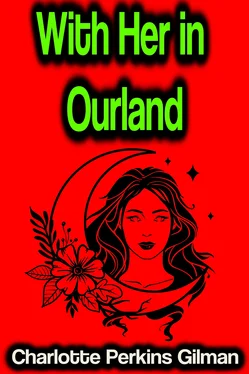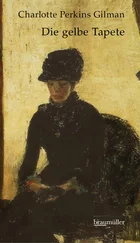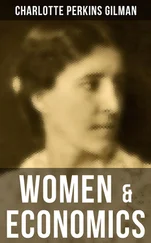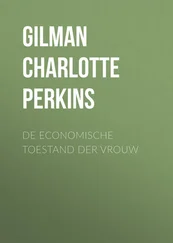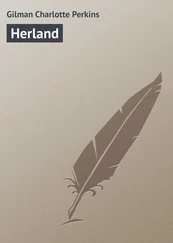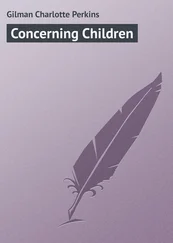I broke the lock—I had to get to her. She would not speak, would not look at me, but buried her face in the pillow, shuddering away from me as if I, too, were a German. The great sobs tore her. It was, I suddenly felt, not like the facile tears of an ordinary woman, but like the utter breakdown of a strong man. And she was as ashamed of it.
Then I had enough enlightenment to see some little relief for her, not from the weight of horrible new knowledge, but from the added burden of her selfrestraint.
I knelt beside her and got her into my arms, her head hidden on my shoulder. "Dear," said I,
"Dear—I can't help the horror, but at least I can help you bear it—and you can let me try. You see you're all alone here—I'm all you've got. You'll have to let it out somehow— just say it all to me."
She held me very close then, with a tense, frightened grip. "I want—I want—my Mother!" she sobbed.
Ellador's mother was one of those wise women who sat in the Temples, and gave comfort and counsel when needed. They loved each other more than I, not seeing them always together, had understood. Yet her mother had counseled her going, had urged it, for the sake of their laud and its future.
"Mother! Mother! Mother!" she sobbed under her breath. "Oh— Mother! Help me bear it!"
There was no Mother and no Temple, only one man who loved her, and in that she seemed to find a little ease, and slowly grew quieter.
"There is one thing we know more about than you do," I suggested. "That is how to manage pain. You mustn't keep it to yourself—you must let it out—let the others help bear it. That's good psychology, dear."
"It seems so—unkind," she murmured.
"Oh, no, it's not unkind; it's just necessary. 'Bear ye one another's burdens,' you know. Also we have a nice proverb about marriage. 'It makes joy double and halveth trouble.' Just pile it on me, dearest—that's what a husband is for."
"But how can I say to you the things I feel? It seems so rude, so to reflect on your people—your civilization."
"I think you underrate two things," I suggested. "One is that I'm a human creature, even if male; the other that my visit to Herland, my life with you, has had a deep effect on me. I see the awfulness of war as I never did before, and I can even see a little of how it must affect you. What I want you to do now is to relieve the pressure of feeling which is hurting so, by putting it into words—letting it out. Say it all. Say the very worst. Say—'This world is not civilized, not human. It is worse than the humble savagery below our mountains.' Let out, dear—I can stand it. And you'll feel better."
She lifted her head and drew a long, shuddering breath.
"I think you are right—there must be some relief. And here are You!" Suddenly she threw her arms around me and held me close, close.
"You do love me—I can feel it! A little—a very little—like mother love! I am so grateful!"
She rested in my arms, till the fierce tempest of pain had passed somewhat, and then we sat down, close together, and she followed my advice, seeking to visualize, to put in words, to fully express, the anguish which was upon her.
"You see," she began slowly, "it is hard for me to do this because I hate to hurt you. You must care so—so horribly."
"Stop right there, dear," I told her. "You overestimate my sensitiveness. What I feel is nothing at all to what you feel—I can see that. Remember that in our race-traditions war is a fine thing, a splendid thing. We have idealized war and the warrior, through all our history. You have read a good deal of our history by now."
She had, I knew, and she nodded her head sadly. "Yes, it's practically all about war," she agreed. "But I didn't —I couldn't visualize it."
She closed her eyes and shrank back, but I went on steadily: "So you see this is not—to us—wholly a horror; it is just more horrible than other wars on account of the infamous behavior of some combatants, and because we really are beginning to be civilized. Now this pain that you see is no greater than the same pain all the way back in history—always. And you are not being miserable about that, surely?"
No, she admitted, she wasn't.
"Very well," I hurried on, "we, the human race, outside of Herland, have been fighting one another for all the ages, and we are here yet; some of these military enthusiasts say because of war —some of the pacifists say in spite of it, and I'm beginning to agree with them. With you, Ellador, through you, and because of you, and because of seeing what human life can be, in your blessed country, I see things as I never did before. I'm growing."
She smiled a little at that, and took my hand again.
"You are the most important ambassador that ever was," I continued. "You are sent from your upland island, your little hidden heaven, to see our poor blind bleeding world and carry news of it to your people. Perhaps that vast storehouse of mother-love can help to set us straight at last. And you can't afford to feel our sorrow—you'd die of it. You must think—and talk it off, remorselessly, to me."
"You Amazing Darling!" she answered at last, drawing a deep breath. "You are right—wholly right. I'm afraid I have—a little—underrated your wisdom. Forgive me!"
I forgave her fast enough, though I knew it was an impossible offence, and she began to free her mind.
"First as to Christianity," she said. "That gave me great hopes—at first. Not the mythology of course, but the spirit; and when that missionary man enlarged on the spread of Christianity and its countless benefits I began to feel that here was a lovely thing it would do us good to know about— something very close to Motherhood."
"Motherhood," always revently spoken, was the highest, holiest word they knew in Herland.
"But as I've read and talked and studied all these weeks, I do not find that Christianity has done one thing to stop war, or that Christian countries fight any less than heathen ones—rather more. Also they fight amoung themselves. Christianity has not brought peace on earth—not at all."
"No," I admitted, "it hasn't, but it tries to—ameliorate, to heal and save."
"That seems to me simply—foolish," she answered. "If there is a house on fire, the only true way to check the destruction is to put the fire out. To sit about trying to heal burned skin and repair burned furniture is—foolish."
"Especially when the repaired furniture serves as additional fuel for more fire," I added.
"You see it !" she exclaimed joyfully. "Then why don't you—but, I see—you are only one. You alone cannot change it."
"Oh no, I'm not alone in that," I answered cheerfully. "There are plenty more who see it."
"Then why—" she began, but checked herself, and paused a little, continuing slowly. "What I wish to get off my mind is this spectacle of measureless suffering which human beings are deliberately inflicting on one another. It would be hard enough to bear if the pain was unavoidable—that would be pure horror, and the eager rush to help. But here there is not only horror but a furious scorn—because they do not have to have it at all."
"You're qute right, my dear," I agreed. "But how are you going to make them stop?"
"That's what I have to find out," she answered gravely. "I wish Mother was here—and all the Over-Mothers. They would find a way. There must be a way. And you are right—I must not let myself be overcome by this—"
"Put it this way," I suggested. "Even if three quarters of the world should be killed there would be plenty left to refill, as promptly as would be wise. You remember how quickly your country filled up?"
"Yes," she said. "And I must remember that it is the race-progress that counts, not just being alive."
Then, wringing her hands in sudden bitterness, she added: "But this stops all progress! It is not merely that people are being killed. Half the world might die in an earthquake and not do this harm! It is the Hating I mind more than the killing—the perversion of human faculty. It's not humanity dying—it is humanity going mad!"
Читать дальше
